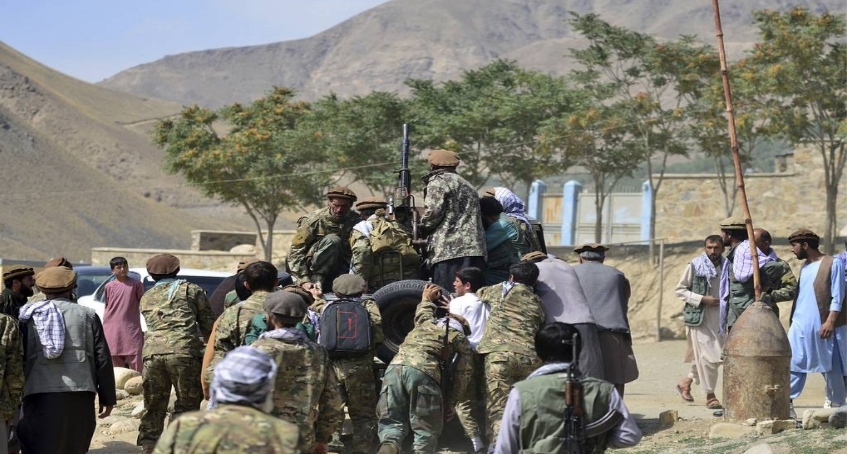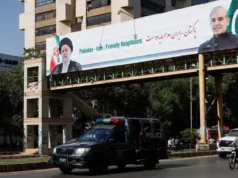Panjshir Defenders Ready For Cooperation With Other Countries Against ISIS

According Fahim Dashtim, the resistance is ready for cooperation on anti-terrorism issues with other countries of the region but only when a principle agreement is reached with the Taliban
The defenders of Afghanistan’s northern province of Panjshir are ready for cooperation on anti-terrorism issues with other countries of the region but only when a principle agreement is reached with the Taliban (outlawed in most countries) about the country’s future, Fahim Dashtim, spokesman for the Panjshir Defenders Saud.
“We will be ready to cooperate with regional countries bilaterally or multilaterally. That’s the question of them,” he said. According to Dashti, the resistance forces are currently discussing anti-terrorism matters with the United States, European and regional countries and want them to push the Taliban to resolve the existing problems peacefully, through negotiations. “If that does not happen, if Taliban wants to establish their own government with their vision on Afghanistan, our demand will be not to recognize the Taliban, to put sanctions on them,” he said.
“We are not making any deal with Taliban against IS (Islamic State, a terrorist organization outlawed in most countries. We are in negotiations with Taliban to establish a government, a system in Afghanistan that would be able to resolve all the existing problems including the presence of terrorist groups,” he said when asked about the resistance’s proposals to the Taliban on issues of combating terrorism.
In his audio address to journalists earlier on Monday, Dashti criticized the security situation in Kabul in the recent days. He doubted the Taliban’s ability to control Afghanistan in the light of the recent terror attack near Kabul’s airport. Commenting on Sunday’s US air strikes in Kabul he slammed the absence of open agreements between the Taliban and the United States.
“We didn’t discuss the future relationship with US during our negotiations with Taliban. That will be an issue to discuss later on. First of all we should reach some consensus on future of Afghanistan. Then we may enter such a discussion,” he said adding that “the negotiation is good.” “The negotiation is going on. Delegations are meeting,” he said, but refused to provide further details.
After the Biden administration announced the end of the US military operation in Afghanistan and the launch of its troop pullout, the Taliban (outlawed in Russia) embarked on an offensive against Afghan government forces. On August 15, Taliban fighters swept into Kabul without encountering any resistance, and gained full control over the Afghan capital within a few hours. Afghanistan’s President Ashraf Ghani said he had stepped down to prevent any bloodshed and subsequently fled the country. Vice President Amrullah Saleh said that under the constitution, he becomes “the caretaker president” in the absence of the president and called for armed resistance against the Taliban.
The northern province of Panjshir is the only pocket of resistance to the Taliban. It is led by Ahmad Massoud, a son of Ahmad Shah Massoud (1953-2001), a once influential leader of Afghanistan’s Tajik community who fought against the Taliban back in the 1990s.
On August 26, two blasts rocked an area near Kabul’s airport, where Western nations are evacuating foreign citizens. The terror attack was staged by Islamic State (outlawed in Russia) terrorists. According to the latest reports, at least 170 people, including 13 US troops, were killed. Several days later, the United States delivered a drone strike in Kabul targeting a car packed with explosives militants from the terrorist group Islamic State in Khorasan (ISIS-K), a branch of the extremist organization Islamic State (outlawed in Russia) were planning to use to stage another terror attack.



